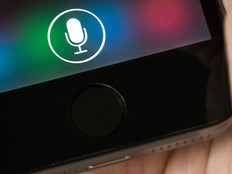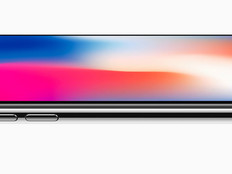So Google Gobbled Up Motorola Mobility — What’s Next?
It was big news when Google bought Motorola Mobility. Any $12.5 billion acquisition would make headlines, but when Google does something of that magnitude, the world takes notice.
So what does this deal really mean to the mobility market? First of all, nothing foreseeable will change with Google, the search engine king. It makes its money through AdWords and other revenue streams. If you’re worried about Google dropping in those areas, don’t. The real changes could be coming for Motorola Mobility and the Android phone business in the next two years or so.
Rob Enderle, founder and principal analyst of The Enderle Group, says this deal was all about patents.
“Google wanted the patents, but they got so expensive, and Google got impatient to do something. So they just bought the whole company,” Enderle says. “But what looked like a deal becomes a big problem. Now the other phone vendors are going to look for Android alternatives because they don't want to get their operating system from a competitor.”
Additionally, Android keeps getting hit with patent infringement lawsuits, and revenue from each Android phone goes to multiple companies because of patent licensing fees. Remember when Google missed out on the $4.5 billion purchase of Nortel’s patents a few months ago? Motorola’s patent war chest might be the biggest of any wireless phone company, because they helped create the business. Now Google’s lawyers have more phone business patent weapons than anyone. Let the patent horse trading begin!
But, according to Enderle, Google made a big mistake. “They have no experience running a hardware firm. Ordinarily they could just keep Motorola at arm’s length and not integrate it, but they’ve upset the phone market.”
Had Google simply bought Motorola’s patents, the phone vendors that are licensing Android wouldn’t care. But now Google, supplier of the Android operating system, owns Motorola Mobility, their direct competitor. As Enderle says, Google can’t let Motorola Mobility fail. So along with the Android OS, the Motorola Mobility folks get access to the huge pile of Google cash.
Enderle predicts a two-year churn as phone vendors find other OSs to replace Android. There’s a chance a company like LG or Samsung could buy the Motorola Mobility hardware business and the current arrangements would continue. But that chance is slim.
If the Android market slows down because of this, Apple will be happy. Their competitors will be busy fighting Google rather than the iPhone. Even Microsoft might make hay while the Android sun sets and sign up some more phone customers.
But in two years, Google could be the iPhone’s biggest competitor. Yep, Google could take on Apple directly — they’ll have their own OS and their own hardware, piles of patents and plenty of cash (even after the $12.5 billion Motorola Mobility purchase). If you ever wondered if Android could leapfrog Apple’s iPhone design and “it” factor, just wait. The Android phone market may be a mess in the near future, but by 2014, there could be some amazing new phones with a “G” on the back.








